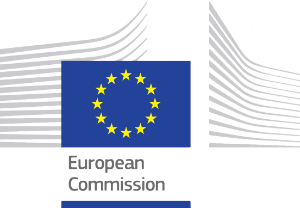Art Therapy - as a response to a need for a deeper register of expression – fuses aspects of the disciplines of Modern Art, Outsider Art and Art Education together with Psychoanalysis and Psychotherapy to provide practical mental and physical health benefits for practitioners. Art Therapy was a largely underappreciated concept and so the Crawford College of Art and Design was particularly well-placed to respond to this gap in the market. The annual Cork Art Therapy Summer School welcomes those with an interest in the therapeutic potential of art to Ireland’s second city, providing them with a unique opportunity to learn about and immerse themselves in the Art Therapy process in the conducive setting offered by a designated UNESCO City of Learning and World Health Organisation Healthy City. Over the course of a week, a series of related lectures, seminars and experiential workshops, facilitated by visiting art therapists, from Ireland and further afield, provide a context for the current practice of art therapy through engaging with and developing a personal understanding of the creative processes – through reflective learning – in a series of studio based workshops. For some this summer school may be the first step on the road to a career in Art Therapy supports and services. For others, it may be an opportunity to re-engage with their creative identity. For trainee and qualified therapists, it may provide continuing professional development.

ReInHerit Digital Hub
The Cork Art Therapy Summer School
Author(s)
ECTN
Terms of reuse
CC BY 2.0
Type of best practice
Audience and Local Community Engagement
Keywords
design, art, creativity
Theme
Management
Art Therapy - as a response to a need for a deeper register of expression – fuses aspects of the disciplines of Modern Art, Outsider Art and Art Education together with Psychoanalysis and Psychotherapy to provide practical mental and physical health benefits for practitioners.
Organisation in charge of best practice
Cork City Council
Location
Cork, Republic of Ireland
Dates
2015 ongoing
Description
Links
Resources needed
The summer school is self-financing (costs €20,000 PA approximately). Participants pay fees of €490 and living accommodation is extra. The programme has a coordinator, technician, caretaker, 2-3 catering staff and 5 facilitators
Challenges encountered
n/a
Evidence of success
The summer school has been running for three decades with up to 60 individuals participating annually from Ireland and from abroad, e.g. UK, Finland, Turkey, Spain, Japan, USA with European and global participation being key and contributing significantly to the local mainstream and niche creative tourism sectors. The summer school was a forerunner to the professional Art Therapy qualification in Ireland, campaigned for by the early stage participants and evolving over the years.
Potential for transfer
The delivery model Art Therapy Summer School is easily transferable to any third level or further education institution, particular those with an established record in delivering art, design, cultural or tourism programmes – either on a full-time or part-time basis. Visiting art therapists, from Ireland and further afield, facilitate an immersive experience of the Art Therapy process in the Cork school; this pool of expertise can be drawn upon from any number of European and locations … even offering the potential for staff or student exchange in the future. In a world of new technologies, it is also possible to offer the learner a blended learning experience, tapping into the Cork expertise while drawing on local or regional resources in new locations. A pedagogy partner could also prove helpful in supporting the development and initial delivery of the programme and an artist-in-resident could be considered a valuable addition or unique selling point for a new programme.
Further Information
n/a
Get in touch
Click here to send us an email, if you have any question or comment on this best practice.
